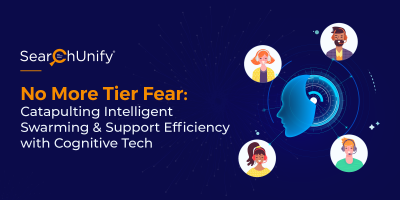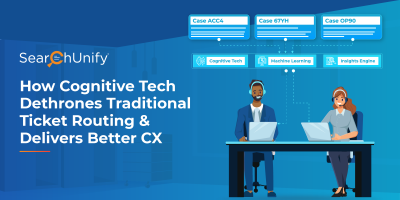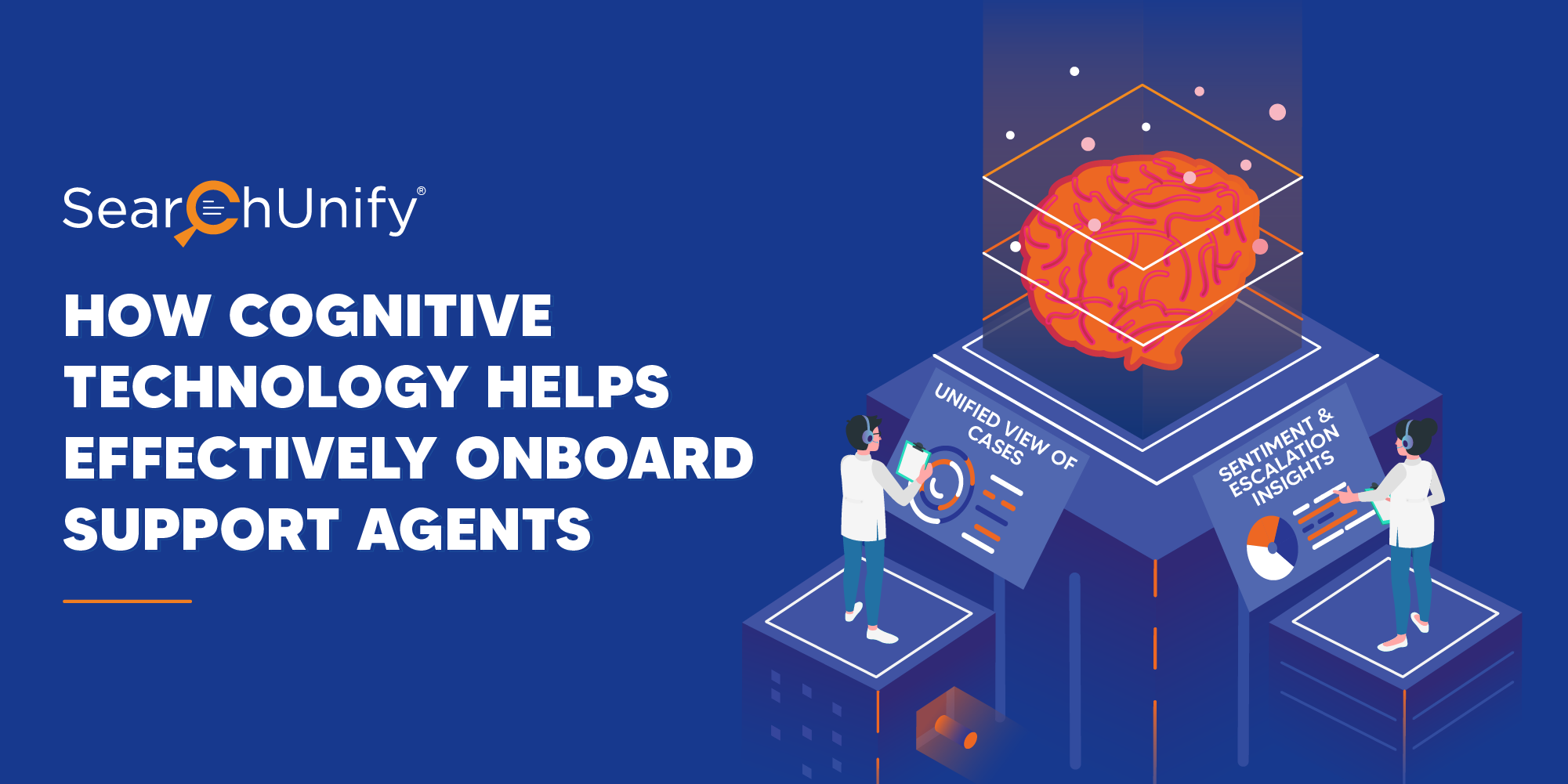
Over the years, the role of support agents has shifted from simple problem-solving to building lifelong customer relations. Even the newly hired customer support executives are expected to provide timely and relevant information.
According to a Salesforce report, 84% of customers say the experience a company provides is as important as its products and services.
Since support agents today play a strategic role, they have the potential to add more business value. It’s a no-brainer that a well-versed support rep who can effectively close tickets translates into delighted customers. So, it becomes important to successfully onboard them.
It begins by bringing together the tools and resources that guarantee the success of a new agent. This blog post equips you with the know-how of leveraging cognitive technology to overcome the common challenges faced during agent onboarding.
The Biggest Challenges of Agent Onboarding
Joining a new firm can be pretty stressful, and much of the burden to create a stellar onboarding process falls on the organization. Given below are some of the most common onboarding issues that could potentially become pitfalls for the firm:
1. Lack of an Onboarding Program
A Harvard Business Study reveals, 22% of companies have no formal onboarding program at all. In such a case, the risk of driving newly hired agents away is high since it leads to lower productivity and employee engagement.
According to a survey, 28% of agents will quit within 90 days of starting a new job due to poor onboarding experience.
2. Insufficient Acclimation Efforts
Inadequate guidance leads the new hires to feel lost, leaving them to stumble in the dark. As a result, agents fail to fit in and deliver mediocre service, which gravely impacts the CX.
3. Poor Cross-team Cooperation
New agents tend to be a bit self-conscious and apprehensive in interacting with people. On top of that, they already have a lot on their plates such as paperwork and understanding processes. That means different departments must proactively welcome the agent to keep the hesitation at bay.
4. Manual Processes
Many firms still dump stacks of paper in the name of agent onboarding and training. Such traditional methods are frustrating for a newbie. And with customer interaction going digital, you cannot treat agents any different.
“About 40 percent of their onboarding activities consist of completing paperwork, such as filling out benefits forms and going over compliance documents.”
5. Lack of a Buddy Program
What most organizations fail to understand – ‘Orientation is not Onboarding.’ The excitement of being a newly hired agent can quickly fizzle out without a designated ‘go-to’ person/mentor to guide them through. Without proper training, the employees straight-away face real-world problems where they can either swim or sink.
Building Effective Agent Onboarding Program with Cognitive Technology
“An effective onboarding experience improves new hire quality by 70%.”
In this era of cutthroat competition, customer service has become a key brand differentiator by leaving ‘product’ and ‘price’ behind. Customer agents understand that their primary job is to build trust and resolve the submitted cases. This can be done by empowering support agents with contextual knowledge in a scalable way to deliver consistent results.
But how? Cognitive technology is the answer. It brings a number of things to the table that prepares new agents to handle any kind of issue. This includes:
1. Intelligent Ticket Routing
Intelligent or skill-based routing takes the agents’ skill set and experience into account and routes the tickets accordingly. Simply put, this system analyzes the ticket and assigns it to the best agent for quicker resolution. Additionally, apps like Escalation Predictor analyze tickets and flag the ones that could lead to escalations. They are then assigned to more experienced agents to ensure prompt resolution. This way, brands can ensure that the fresh recruits aren’t overwhelmed by complex issues.
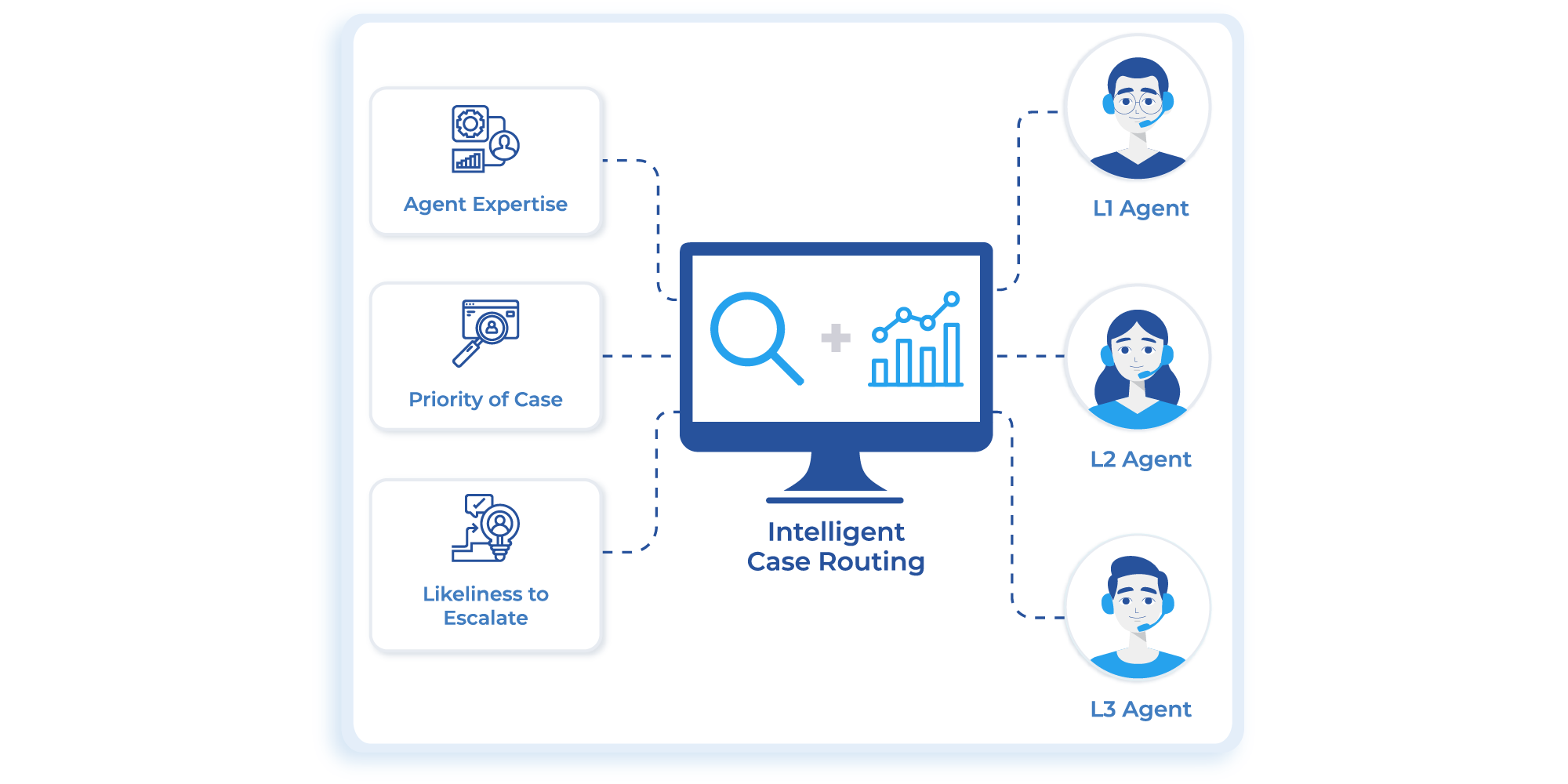
2. Finding Helpful Knowledge
New agents will take a while to get accustomed to the different types of tickets. Without guidance, they might do more harm than good. Luckily, apps like Agent Helper function as their training wheels. It leverages machine learning to surface problem-solving information from similar cases. This eliminates the struggle to find answers and trains agents on the job.
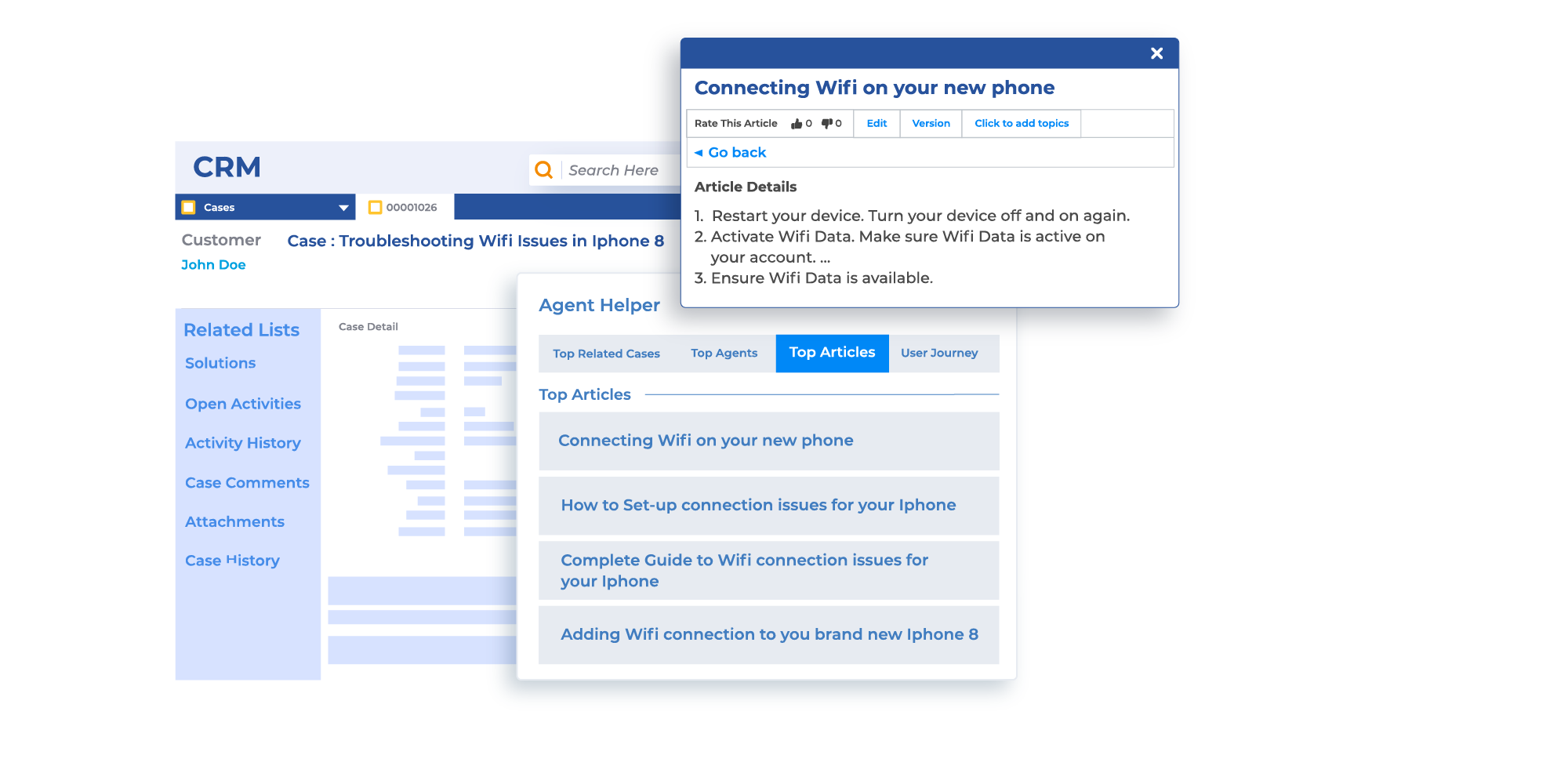
3. Recommending SMEs for Complex Issues
Despite the best efforts of an enterprise, there are instances where the agents stumble upon an undocumented issue. For a new agent, this could be overwhelming. But with apps like Agent Helper, you can easily dodge this bullet. In addition to case-related information, it also suggests SMEs with a demonstrated expertise on the matter. This enables the agent to collaborate with the right people and close the ticket in a jiffy.
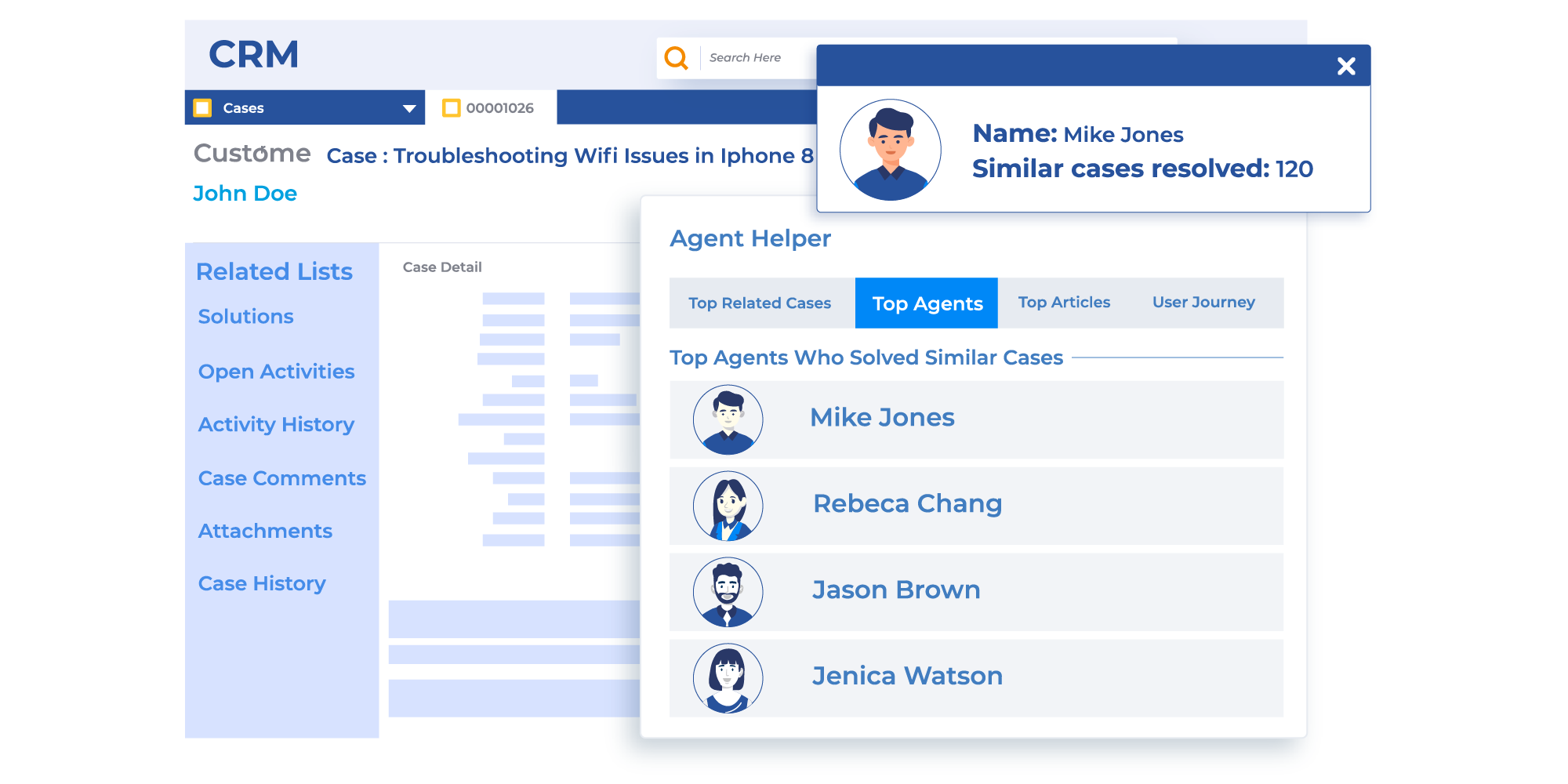
4. Embedding Knowledge Creation
Once the undocumented issue has been resolved, the next step would be to add this resolution to the knowledge base, and here lies the challenge. For an agent who is still getting used to the type of tickets and workflows of the new organization, the added responsibility of creating knowledge articles might push them over the edge. That’s where KCS Enabler kicks in: it proactively populates a knowledge article based on the agent’s resolution for the undocumented issue.
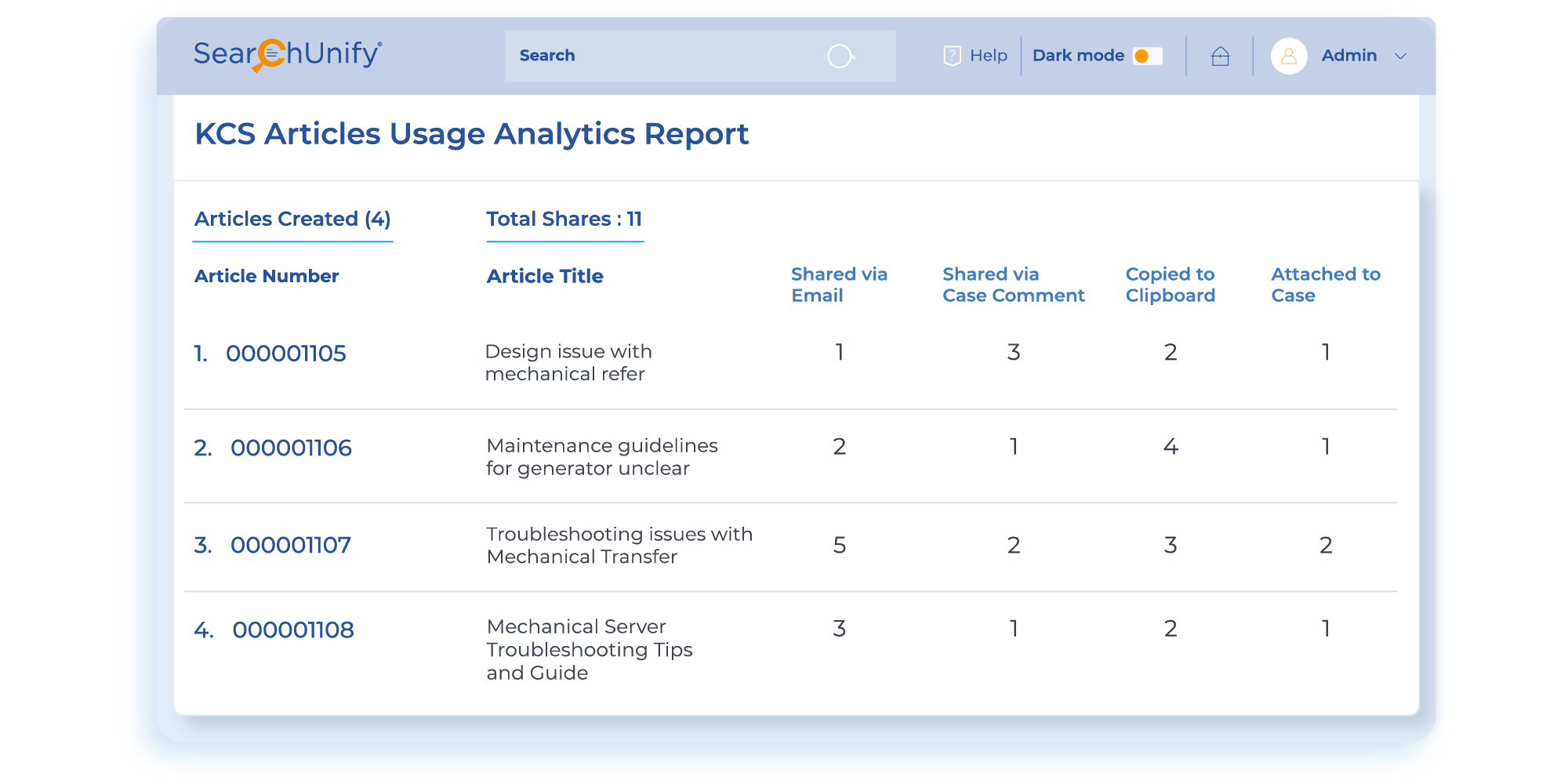
5. Boost Morale with KCS Enabler
“Companies that have happy employees show 147% higher earnings per share than their competitors.” – 6Q
Gamification is one of the most effective ways to motivate employees to work harder. This technique also works for support agents. KCS Enabler also offers insights into the performance of created knowledge. This helps you decipher how useful the generated information proved to be. By awarding these leading contributors, you promote a culture where quality takes precedence over quantity.
Closing Point
The onus of successfully onboarding an agent falls on the organization. But since the support managers are often occupied by several other tasks, the need to automate certain tasks becomes apparent. With SearchUnify’s suite of next-gen support applications, you’re well on your way to create an efficient and streamlined onboarding process.
This shift from meticulous human involvement to automation adds value in ways once unimaginable. With the help of apps like Escalation Predictor, Agent Helper, and KCS Enabler, newly hired agents can deliver their best performance. They can focus their efforts on scaling down the turnaround time, prevent escalations, and improve result outcomes for maximum impact right from the word go.


